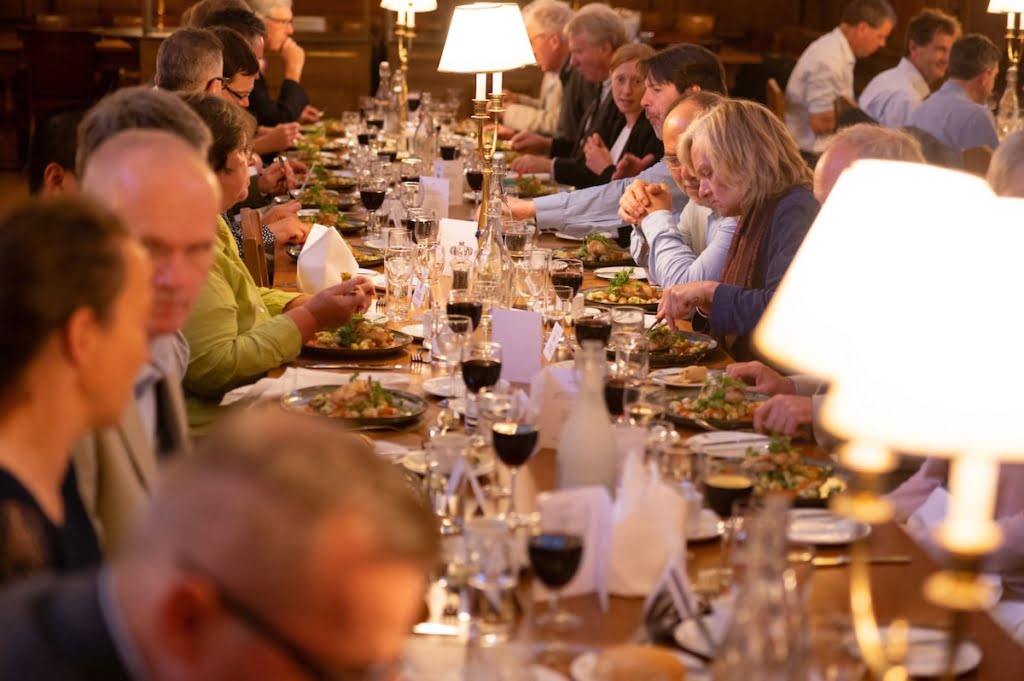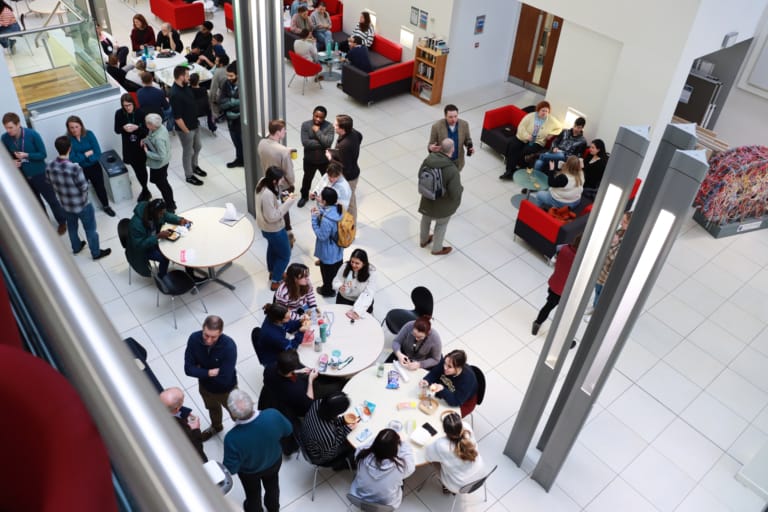On 8 and 9 September, we returned to our usual venue of Corpus Christi College, University of Oxford, for our annual gathering of Fellows and Members.
Proceedings were also live cast over Zoom for those not able to attend in person.
Lecture from Professor Frances Platt: Saved by the Lister Institute; the story of miglustat
The opening talks at this meeting always serve to inspire, and Frances’ presentation was no different.

She talked us through her body of work into lysosomal storage diseases, and how her 1994 paper outlining a new therapy approach – which was met with considerable scepticism – led to animal research and then human trials to establish miglustat as an approved treatment in 2002-3.
The audience enjoyed Frances’ recollections of applying for the Lister Fellowship two days before the closing date, which resulted in her submitting “a stream of consciousness” and posting it without any time for edits.
The huge impact of her work is undeniable. As the only approved therapy for this disease, miglustat adds an average of 10 years to life expectancy: “Niemann-Pick patients wouldn’t have received treatment if it wasn’t for the Lister Institute,” she said in concluding her talk.
Talks by winners of the 2021 & 2022 Research Prizes
Dr Christopher Stewart, Newcastle University (2021 Fellow): Using stem cell-derived “mini guts” to investigate microbiome-host interaction in early life
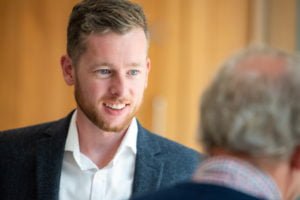
Pre-term babies are at risk of necrotising enterocolitis (NEC) – a life-threatening infection resulting from inflamed tissues in the gut. Christopher talked about his work with the Great North Neonatal Biobank to investigate what it is about human milk that helps support the healthy development of the infant gut.
He has identified DSLNT as a sugar that is needed to prevent NEC and continues to explore how different bacteria in babies’ gut microbiome react to sugars such as this one.
Since the meeting, Christopher’s latest paper, Strain-specific impacts of probiotics are a significant driver of gut microbiome development in very preterm infants, was published in Nature Microbiology. This paper highlights Christopher’s work using intestinal organoids derived from pre-term infants.
Dr Tung Le, John Innes Centre (2022 Fellow): The line of duty: How to segregate a giant linear plasmid in antibiotic-producing Streptomyces

Tung kicked off the series of talks from 2022 Prizewinners on Thursday afternoon.
He gave the audience an overview of his research with Streptomyces – and his efforts to understand how they form giant linear plasmids to ensure DNA is not damaged during bacterial cell replication. Tung’s Lister-funded project will explore how this happens in multicellular organisms.
His work has potential to contribute to the vitally important discovery and production of new antibiotics.
The talk certainly went down well, with Professor John Iredale praising the “beautiful, elegant work.”
Poster session
The day concluded with a buffet and drinks reception alongside viewing of the Lister Summer students’ posters.

It is always a great honour to be able to fund these studentships and this is a unique opportunity for the students to meet other Lister Fellows and members.
Find out more about the Lister Summer Studentships.
The end of the first day of our AGM coincided with the sad announcement of the death of Her Majesty, Queen Elizabeth II. The bells rang out across Oxford that evening.
Talks by winners of the 2022 Research Prizes
Dr Shoba Amarnath, University of Newcastle-upon-Tyne: Translating co-receptor biology to immuno-therapeutics in cancer
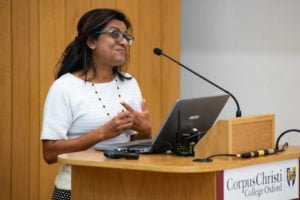
Shoba is attempting to discover whether there is an initial immune cell in tumours that drives tumour immunity. The hope is that this research will help explain why immune checkpoint therapies currently only benefit a third of patients – and help improve them accordingly.
Her work is focussing on the PD-1 receptor, but Shoba’s lab is asking many questions: “In the next few years, we’ll be tearing apart the immune system in melanoma patients and putting it all back together,” she says.
Dr Elizabeth Ballou, University of Exeter: Investigating how cross-kingdom microbial partnerships impact fungal pathogenesis of the causative agent of Mucormycosis

Liz gave us a fascinating insight into the unique Mucorales fungi, which she described as widely misunderstood by clinicians and has limited treatment options.
During the delta wave of Covid-19 in India, doctors were giving patients steroids to try and tackle their symptoms… but found that two weeks later the same patients were returning to hospital with severe mucormycosis.
How can we identify global trends in highly diverse clinical isolates, she asked, to find a signature for endosymbiosis and improve outcomes for patients?
Dr David Bending, University of Birmingham: Regulation of T cell receptor signalling dynamics during T follicular helper cell responses

David talked about his work to reveal how T cell receptor signal strength and duration impact upon T follicular helper cells formation. Ultimately, he hopes his research will lead to the development of more effective vaccines and immunotherapies by identifying the ideal amount of antigen – “the ‘Goldilocks’ amount.”
David is using Lister funding for proof of principle studies to establish new vaccination models, expanding research to assess mode of antigen delivery and route, and to keep on his MSc student in a technical post to continue their research.
“I know enough about immunology to know that was absolutely brilliant,” said Alex Markham, following the lecture.
Dr James Davies, University of Oxford: Using base pair mapping of genome architecture to interrogate the mechanisms by which enhancers control transcription

James’ talk focussed on his lab’s technique to capture chromosome conformation at base pair resolution. This work is providing insights into the fundamental mechanisms by which genes are controlled as well as enabling a better understanding of the effects of sequence variation on human disease.
He hopes to integrate the lab’s new technique with modelling approaches, such as machine learning, static models, and polymer modelling.
Antonio Di Marco, Imperial College London: Unravelling epigenetic pathways leading to chemo-resistance in ovarian cancer with a light-controlled CRISPR-based platform
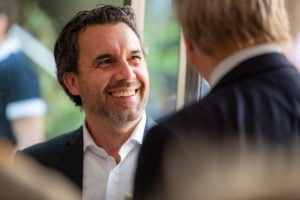
“I really like challenging dogmas,” said Marco – and with that, the lecture theatre was captivated! His work relates to the fact that DNA is not only a double helix, and the genetic code is not limited to A, T, G, and C nucleotides.
His lab looks in particular at ovarian cancer – a disease for which the survival rate hasn’t improved since 1975 while other cancers have. Their work aims to understand the temporal and spatial control of methylation in ovarian cancer that contributes to therapy resistance.
Talk by 2020 Prizewinner, Dr Hayley Sharpe, The Babraham Institute: Receptor tyrosine phosphatase signalling mechanisms in health and disease

Unable to join us in previous years since the pandemic, Hayley finally joined us for her Prizewinner’s lecture to discuss her research into receptor tyrosine phosphatase (RTP) signalling mechanisms.
Her research is “reshaping how we think about RTPs” and she is using her Lister funding to expand into new areas of signalling, using a mouse mode for CD45 and having recruited a PhD student to the lab to drive this forward.
Special Lister Lecture from Professor Sir Alex Markham
As outgoing Chair, Alex treated us to a warm and reflective walk through his life and times, as he prepared to bid the Lister “a fond au revoir”.
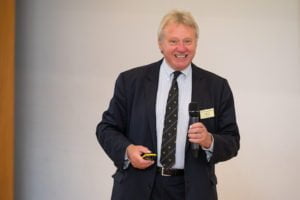
Professor Jon Iredale thanked him for his years of service and the audience enjoyed some photos of Alex’s trip to a brewery to make his very own “Alex’s Lister Ale” – bottles of which went down rather well at the evening drinks reception!
Rory Guinness tweeted, “What a legend of a man. A kind gentleman with a great sense of humour. We are so lucky to have had the honour of his Chairmanship. Scientists and science have benefited immeasurably from his wise ways.”

We cannot thank Alex enough for his Chairmanship and we wish him a very heartfelt best of luck for the future.
